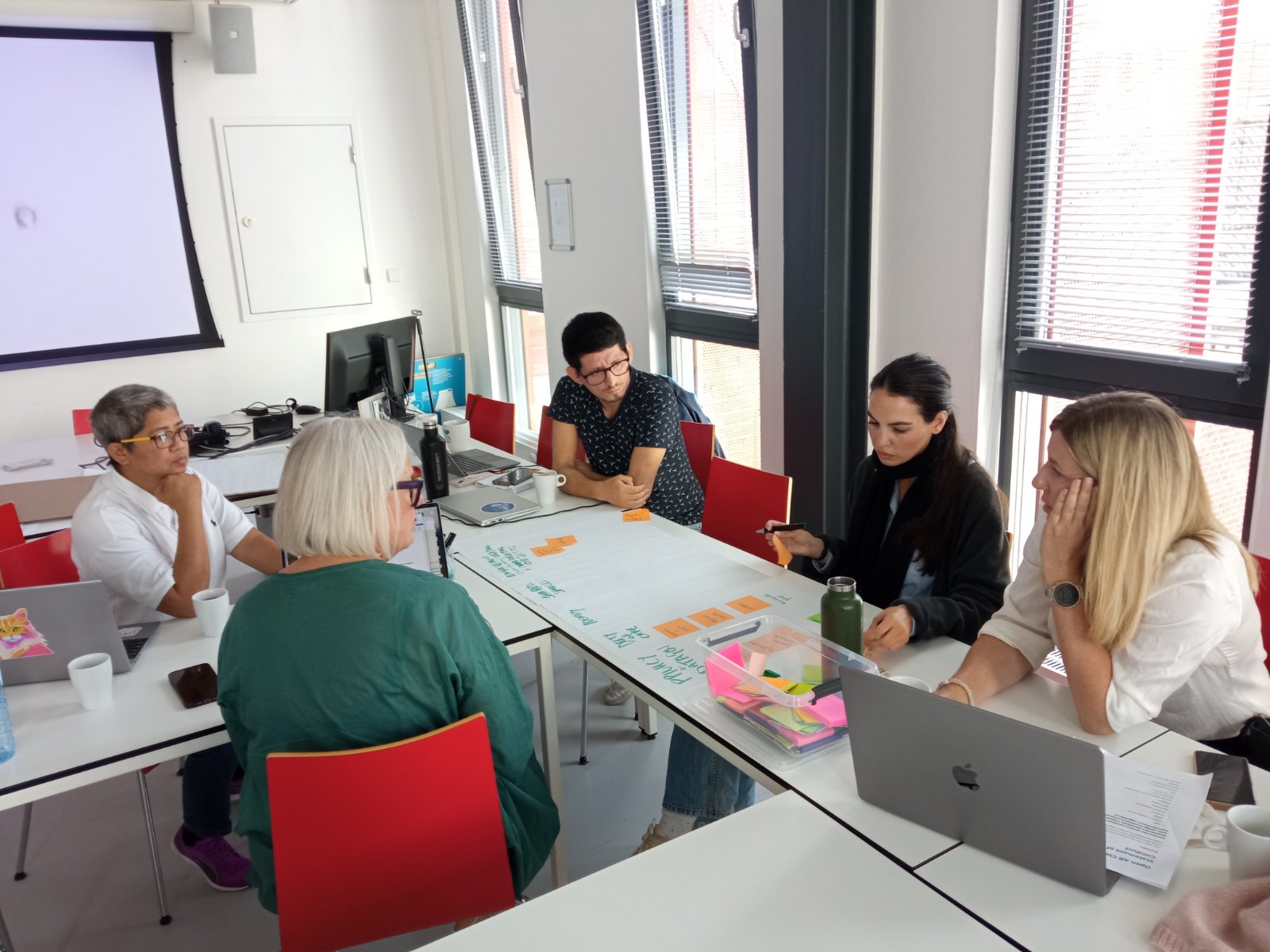Building Ethical XR: The European Code of Conduct
LLInC’s Marco Correa Pérez and Melissa Amorós Lark are, rather excitingly, part of the team behind the EU-funded project XR4Human which is currently leading the development of a European Code of Conduct for XR technologies. This initiative addresses the ethical, social, and technical challenges of rapidly evolving XR (Extended Reality) technologies, guiding developers, policymakers, and stakeholders in order to ensure responsible and ethical innovation across the EU.
In this article, we join them as they elaborate upon the nature and ambitions of the project, as well as share with us an insight into their recent two-day workshop for all consortium partners, held in our offices in the Hague.
At XR4Human, a three-year EU-funded project under the Horizon Europe programme, we are committed to addressing the ethical, social, and technical challenges that arise as XR (Extended Reality) technologies rapidly evolve across the European Union (EU). XR, which includes Virtual Reality (VR), Augmented Reality (AR), and Mixed Reality (MR), is becoming an integral part of our daily lives, whether through virtual meetings, immersive learning, or interactive gaming. As these technologies become more widespread, however, it is crucial to ensure they are developed and used responsibly, ethically, and inclusively.
Funded by Horizon Europe, the world’s largest research and innovation programme with a budget of EUR 95.5 billion, XR4Human’s mission is to co-create living guidance documents on ethical, regulatory, policy, governance, and interoperability issues surrounding XR technologies. Our goal is to build public trust, foster acceptance, and strengthen Europe’s competitive XR ecosystem.
To support the objectives of XR4Human, we are developing a European Code of Conduct for XR technologies. Recently, we hosted a two-day workshop at Leiden University’s LLInC offices in The Hague, where we collaborated with our consortium partners from across Europe—including Karlsruhe Institute of Technology, National Technical University of Athens, Open AR Cloud Europe, University of Oslo, University of South-Eastern Norway, and XR4Europe. Our aim was to lay the groundwork for this Code which will guide developers, policymakers, and stakeholders across Europe to ensure XR innovations are both socially responsible and ethically sound.

Our Vision for the European Code of Conduct
A key objective of our workshop was to establish a shared vision for the Code of Conduct which will serve as the foundation for the ethical development and use of XR technologies throughout Europe. We aimed to ensure this vision is both practical and comprehensive, guiding every stage from design to deployment.
At its core, we envision XR technologies which positively serve society and which have a focus on responsible innovation. This means ensuring that XR is developed with people’s well-being in mind. We envision that the Code will foster equitable, inclusive, and human-centred XR technologies that meet the needs of all stakeholders involved.

Stakeholder Engagement
Engaging with stakeholders is essential to ensure that the European Code of Conduct reflects the diverse needs and concerns of everyone involved in the XR ecosystem. We are working closely with developers, producers, policymakers, and users to gather a wide range of perspectives and ensure that the Code is both practical and comprehensive.
We are particularly excited to continue gathering feedback through the XR4Europe Community Forum. This platform provides an opportunity for ongoing dialogue with stakeholders, allowing them to share insights and help shape the final version of the Code. We encourage everyone to visit the forum at https://community.xr4europe.eu/ and join the discussion as we work together to develop this important guide for responsible and ethical XR technology.
Priorities and the Way Forward
One of the key outcomes of our workshop was the establishment of a clear path forward for the drafting and finalisation of the European Code of Conduct. We have already identified the next steps, including drafting the key articles and gathering feedback from experts and stakeholders. Additionally, we are considering how to ensure the Code remains adaptable as XR technologies continue to evolve.
As we move forward, we are excited about the progress we’ve made and the work that lies ahead. With our shared vision and clear principles, we are confident that the European Code of Conduct will guide the responsible and ethical development of XR technologies across the EU, ensuring that they bring real benefits to society in a meaningful and inclusive way.
Much of this effort will be supported by LLInC, which brings valuable expertise through its Holistic Data Responsibility Framework. This framework is built around six key areas—Technology, Legal, Governance, Process, People, and Network—all of which are guided by the Dimension of Ethics. LLInC’s contribution will ensure that the Code reflects a strong commitment to data stewardship, making sure that data handling in XR is ethical, transparent, and accountable at every level.
For more information about LLInC’s expertise in this field, please see an overview of our XR work, as well as:
- Our XR ERA community
- XR4HUMAN: Our Role In Developing European Standards For Ethical XR
- Our Holistic Data Responsibility Framework
For more information about the XR4Human Consortium, feel welcome to visit the official website.


